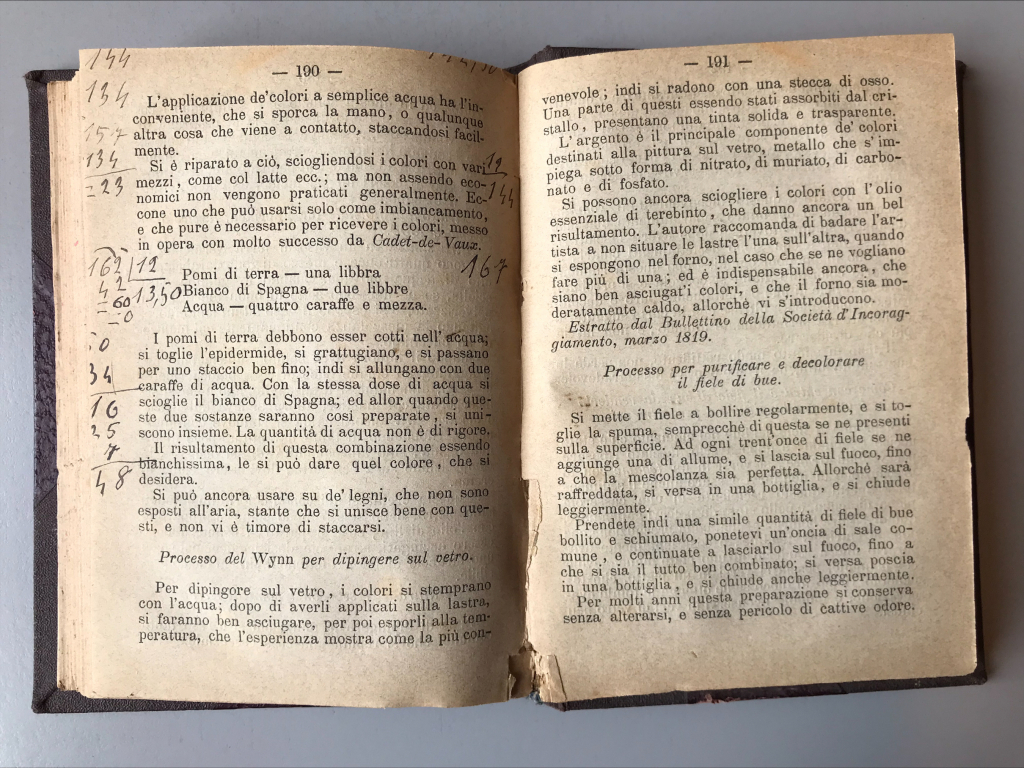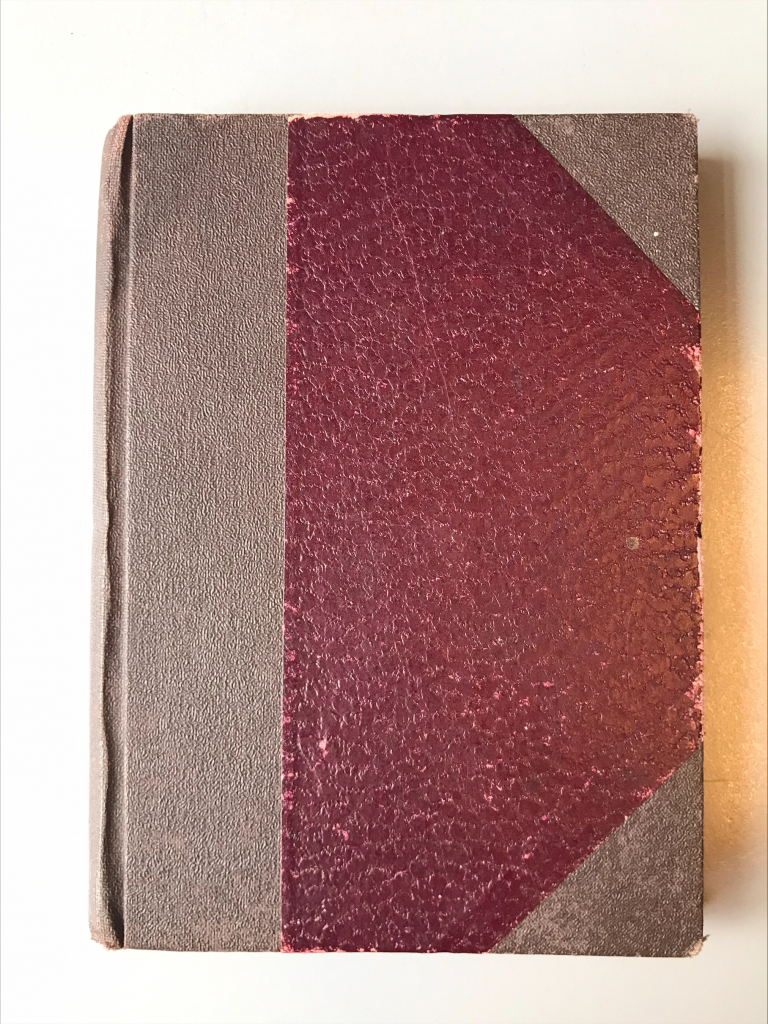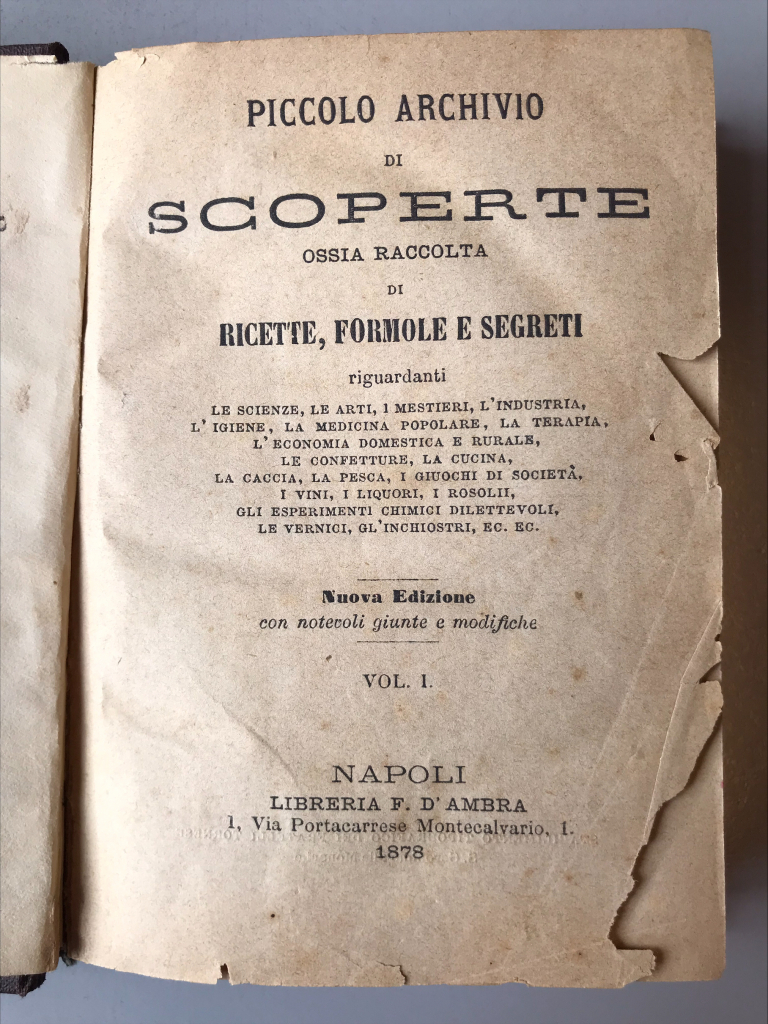 Ordinarily, it’s the library (or the librarian) who chooses the new acquisitions for collections. We either search out new titles in our favourite publishers’ newsletters or peruse internet catalogs for titles linked to ICCROM’s programmes and activities. We also receive tips and requests from our users (feel free to reach out if YOU have a suggestion for us!) Finally, we always enjoy receiving donations of books from our Member States and friends of our Library.
Ordinarily, it’s the library (or the librarian) who chooses the new acquisitions for collections. We either search out new titles in our favourite publishers’ newsletters or peruse internet catalogs for titles linked to ICCROM’s programmes and activities. We also receive tips and requests from our users (feel free to reach out if YOU have a suggestion for us!) Finally, we always enjoy receiving donations of books from our Member States and friends of our Library.
But the little book that is the protagonist of this month's column came to us in a different way. During a recent visit to a Roman flea market, I rummaged through an extensive collection of books of every genre. I had no intention of buying anything; I was just wasting some time, lazily skimming the titles. But a little red book among the pile caught my attention. I plucked it out and read its long-winded title: "Piccolo archivio di scoperte ossia raccolta di ricette, formole e segreti riguardanti le scienze, le arti, i mestieri, l'industria, l'igiene, la medicina popolare, la terapia, l'economia domestica e rurale, le confetture, la cucina, la caccia, la pesca, i giuochi di società, i vini, i liquori, i rosolii, gli esperimenti chimici dilettevoli, le vernici, gli inchiostri ec. ec."


In English, this more or less translates to: A small archive of discoveries, i.e., collection of recipes, formulas and secrets concerning science, arts, crafts, industry, hygiene, folk medicine, therapy, home and rural economy, jams, cooking, hunting, fishing, parlour games, wines, liqueurs, rosolios, amusing chemical experiments, paints, inks, etc.
My first reaction was amusement - an all-around knowledge almanac! A historical book for self-supporters! I read on: "Nuova edizione con notevoli giunti e modifiche." (New edition with considerable joints and changes, trl). On the bottom of the title page, it said that it was volume 1 (unfortunately only, I thought) and that the booklet had been published in Naples in 1878 by the Libreria F. D'Ambra.
My interest was piqued by this 145-year-old book, which someone had decided to part with. I began to leaf through the small volume and read. Yes, there it was: a detailed chapter on ceramics and glazes, as well as chapters on fabrics, dyes, inks and pigments. “Welcome to the ICCROM Library!” I thought to myself and bought the book for only a few euros. It will have a place of honour in our Rare Book Collection, and I hope it will be useful to many researchers over the years.
If you are interested in learning how plaster sculptures were once made to look like marble, or if you would like to learn how etchings were repaired or how oil paintings were transferred from one canvas to another, please write to us or come directly to the Library! We look forward to your visit.
Citation: Piccolo archivio di scoperte ossia raccolta di ricette, formole e segreti riguardanti: le scienze, le arti, i mestieri, l'industria, l'igiene, la medicina popolare, la terapia, l'economia domestica e rurale, le confetture, la cucina, la caccia, la pesca, i giuochi di società, i vini, i liquori, i rosolii, gli esperimenti chimici dilettevoli, le vernici, gl'inchiostri, ec.ec. - Napoli : Libreria F. D'Ambra, 1878 - 240 p. ; 16 cm.
ICCROM Library : V B 185 rare
